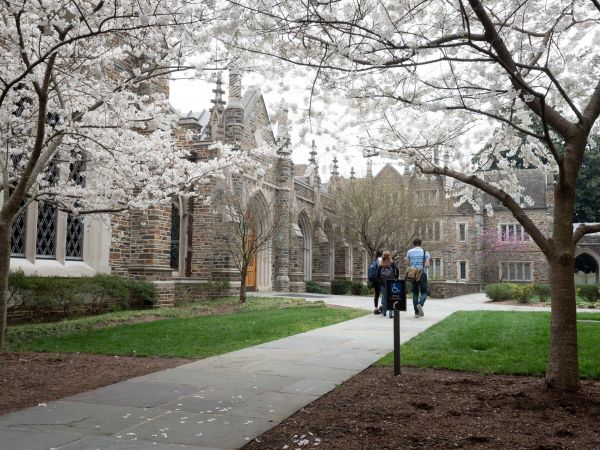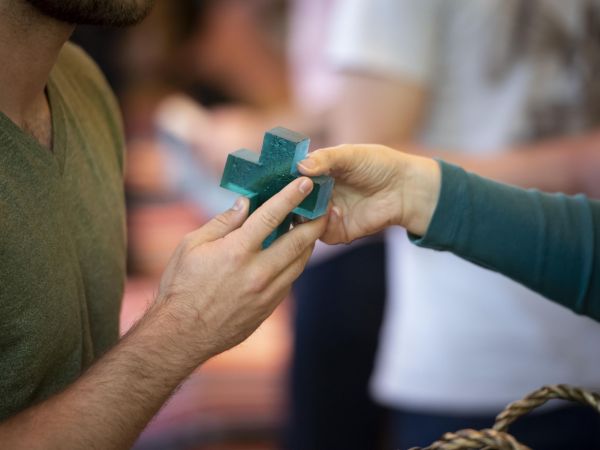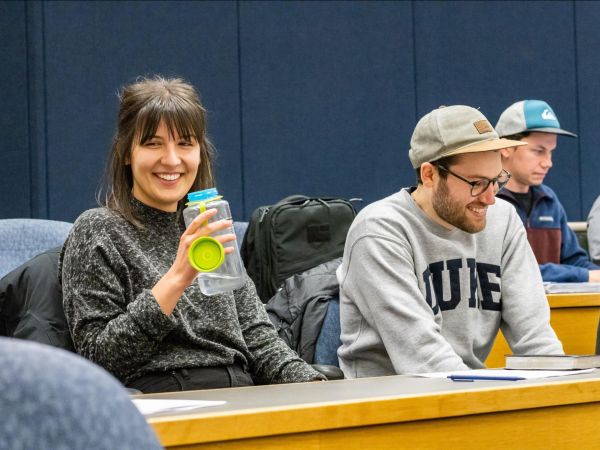When you’re ready to follow God’s call to service and ministry, we’re here to help you take the next steps. Duke Divinity’s highly regarded Master of Divinity degree has trained church leaders for nearly 100 years, and now through the hybrid delivery model you can have that preparation from wherever you are. Offering rich academic courses in a remote, online, flexible format—alongside intentional ministerial formation and focused theological reflection—a Master of Divinity (M.Div.) degree at Duke Divinity School will develop your imagination and prepare you to meet the challenges facing the church, academy, and world of tomorrow.

"I’m so thankful that I found the Hybrid M.Div. program. I had been feeling an increasing call to go to grad school, but the more I looked, the more disheartened I was, because I was unable to find programs that had the flexibility that I wanted and needed with having young kids and being in full-time ministry. Others just didn’t quite have the caliber or the diversity of staff that I was hoping for. I stumbled onto the Duke Divinity Hybrid M.Div. program, and the more I read about it, the more it felt like a perfect fit.”
Spiritual Formation
A key strength of the Hybrid M.Div. program is an opportunity for guided spiritual formation. You will deepen your own spiritual practices by cultivating habits and rhythms for sustaining a lifetime of Christian service. You will also have time, space, and mentoring to discern your future vocation.
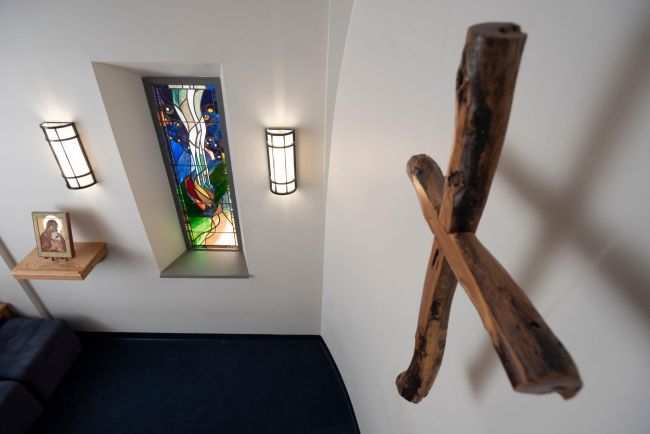
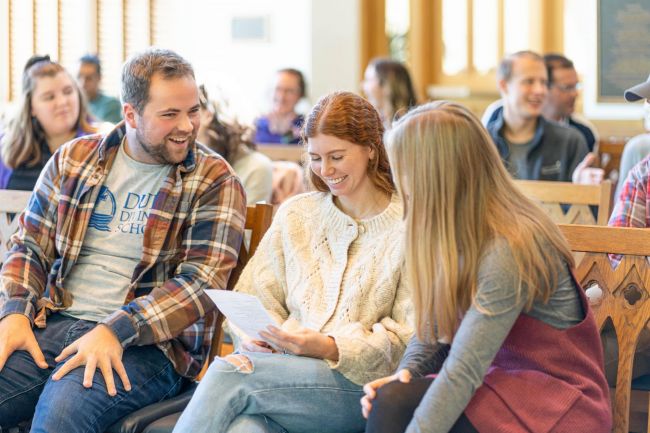
Building Community
The first interaction that students have with their peers in the Hybrid M.Div. program is an intensive in-person study period. Relationships form quickly as students wrestle with the biblical and theological frameworks shared in class. Although students may come from diverse backgrounds and denominations, their cohort of peers becomes a touchstone throughout their degree. Community is a signature of this program.
Opportunities That Bridge Thinking and Doing
Contextual education is central to the Hybrid M.Div. program. We work closely with each Hybrid M.Div. student to help design student-initiated field education placements around your learning goals, including the possibility of designing one in your current site of practice.
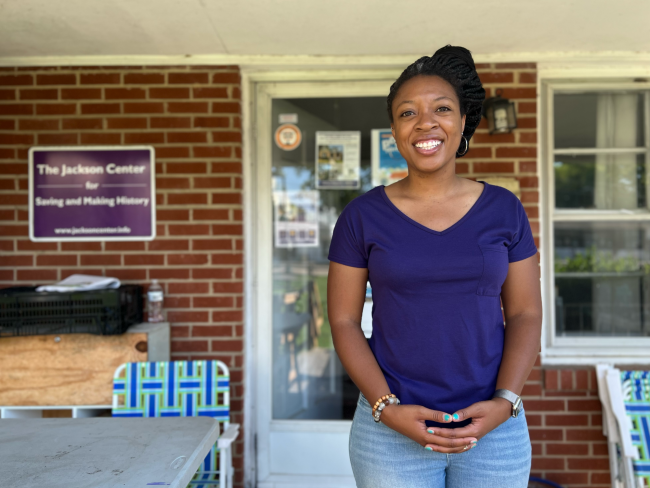
Houses of Study
Our houses of study help prepare you for service—and ordination—in the communities and denominations where you’ll serve. They include the Methodist/Wesleyan House of Studies, the Baptist House of Studies, the Anglican Episcopal House of Studies, the Presbyterian/Reformed House of Studies, the Office of Black Church Studies, the Asian House of Studies, and the Hispanic House of Studies.
The hybrid learning curriculum combines remote coursework with week-long residential immersion weeks scheduled in January, May, and August on the Duke Divinity School campus in Durham, N.C. Program courses, both online and on campus, are taught by the same Duke Divinity faculty who teach students pursuing a residential M.Div. and give students the opportunity to engage in a world-class education no matter where they are located.
The curriculum for the Hybrid M.Div. is designed to meet you where you are and take you wherever you are called by God to go—be that ordination, lay ministry, nonprofit work, or a career in teaching. Our flexible delivery classes cover Old and New Testament, church history, Christian theology, world Christianity, ministry, worship, preaching, biblical languages, the Black Church, and a variety of electives.
We know that many Hybrid M.Div. students are working full-time. The curriculum offers a class schedule optimized for busy students and a pathway to earn your degree while staying in your current context.
Curriculum
Our curriculum offers students a way to earn a degree while staying in their current context.
First Year
Fall Term
- Old Testament Core Course Part I
- Church Ministry Elective
- Spiritual Formation (for credit)
Spring Term
- Old Testament Core Course Part II
- New Testament Core Course
- Spiritual Formation (for credit)
Summer Term
- Black Church Studies or World Christianity Elective
- Elective or Biblical Language
- Formation for Ministry
Second Year
Fall Term
- Christian Theology Core Course
- Church History Core Course Part I
- Formation for Ministry
Spring Term
- Christian Ethics Core Course
- Church History Core Course Part II
- Formation for Ministry
Summer Term
- Black Church Studies or World Christianity Elective
- Elective or Biblical Language
- Formation for Ministry
Third Year
Fall Term
- Preaching Core Course or Elective
- American Christianity
- Formation for Ministry
Spring Term
- NT Exegesis or Elective
- Elective
- Formation for Ministry
Summer Term
- Elective
- NT Exegesis or Elective
- Formation for Ministry
Fourth Year
Fall Term
- Practicing Theology in Ministry Elective or Other Elective
- Elective
- Formation for Ministry
Spring Term
- Elective
- Elective
- Formation for Ministry
Looking for a Residential Master of Divinity Program?
Our traditional Master of Divinity program gives you broad academic preparation for leadership of flourishing ministries, creative institutions, and thriving communities in a residential format, typically completed in three years.
Spiritual Formation
The thread that runs through the Hybrid M.Div. program is spiritual formation. Students in each new cohort are assigned a mentor that will direct their spiritual formation throughout the year. You will deepen your own spiritual practices by cultivating habits and rhythms for sustaining a lifetime of Christian service. You will also have time, space, and mentoring to discern your future vocation. Spiritual formation is complemented by formation for ministry in a variety of ways—through coursework, corporate worship, field education, service opportunities, houses of study, and denominational associations.
Graduation Requirements
The Hybrid Master of Divinity is normally completed in four years. Requirements for graduation are:
- 24 courses comprising 8 core courses, 5 limited electives, and 11 electives
- 2 units of field education in your local context
- Spiritual or ministerial formation in each term
- 2 student portfolios (one each in second and third years)
Hybrid Format
A hybrid learning environment offers Hybrid M.Div. students the best of both worlds—remote coursework combined with week-long residential immersion weeks. Online learning is designed to be flexible, offering scheduled online classes (using Zoom and typically around the lunch hour EST) and self-paced learning so that students can remain in ministry or working full time while also engaging in rigorous theological reflection. The residential sessions are scheduled three times a year—January, May, and August—and take place at Duke Divinity School on the Duke campus in Durham, N.C.

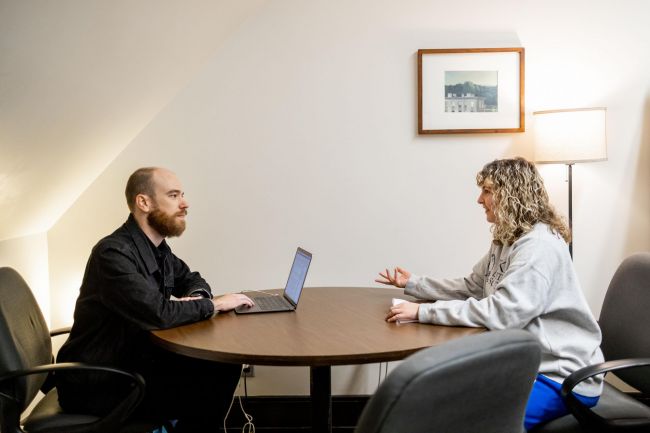
Academic Support at Duke Divinity
The Center for Writing and Academic Support provides services for writers of all abilities. In addition, we offer the RISE pre-orientation workshop to introduce the fundamentals of theological thought and writing; ongoing academic support workshops throughout the year; and tutors who are available to virtually work with students one-on-one.
Certificates



An education from Duke Divinity School is worth your investment, and you do not have to figure out the finances alone.
All M.Div. students receive funding.
Duke Divinity School is investing in you, too. It is an investment in your education, the church, and our shared future. All M.Div. students receive some form of scholarship support from Duke Divinity School that will cover between 25% and 100% of tuition costs, and there is no separate application needed in order to be considered. The Hybrid M.Div. also helps with affordability by making it possible to maintain employment while also pursuing education at Duke. Many other internal and external scholarships, as well as federal financial aid in the form of work study and loans, make it possible for students to afford Duke Divinity. We are committed to ensuring that every student who hears the call to ministry can fund their education here. FAFSA should be completed for external aid. More information can be found in our Financial Aid section.
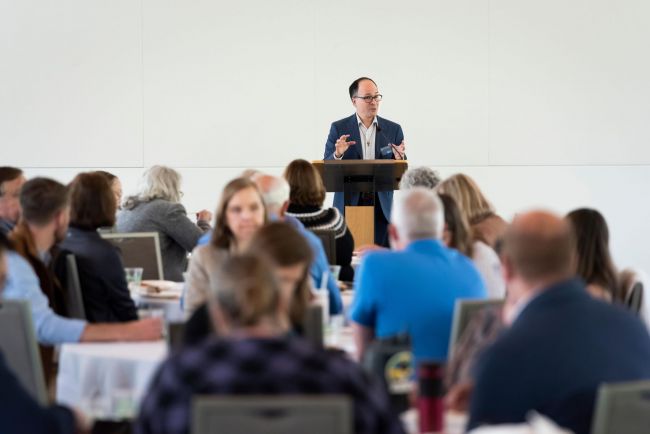
Lifelong Dividends
In addition to earning a degree from Duke Divinity School, you also receive benefits that continue to impact your life long after you leave. You’ll have space for learning timeless ministry skills, cultivating holy friendships that will sustain you, and forming relationships with faculty who can serve as mentors as your vocation unfolds. The overwhelming majority of our students say their investment is worth it.
Ready for the Next Step?
Duke Divinity School accepts applications from students with a demonstrated commitment to some form of ordained or lay ministry and a minimum GPA of 2.75 in a bachelor’s degree from a regionally accredited college or university prior to the intended date of enrollment.
Visit Campus
The best way to learn more about us is to visit. Schedule an in-person or online visit.
Visit Us








